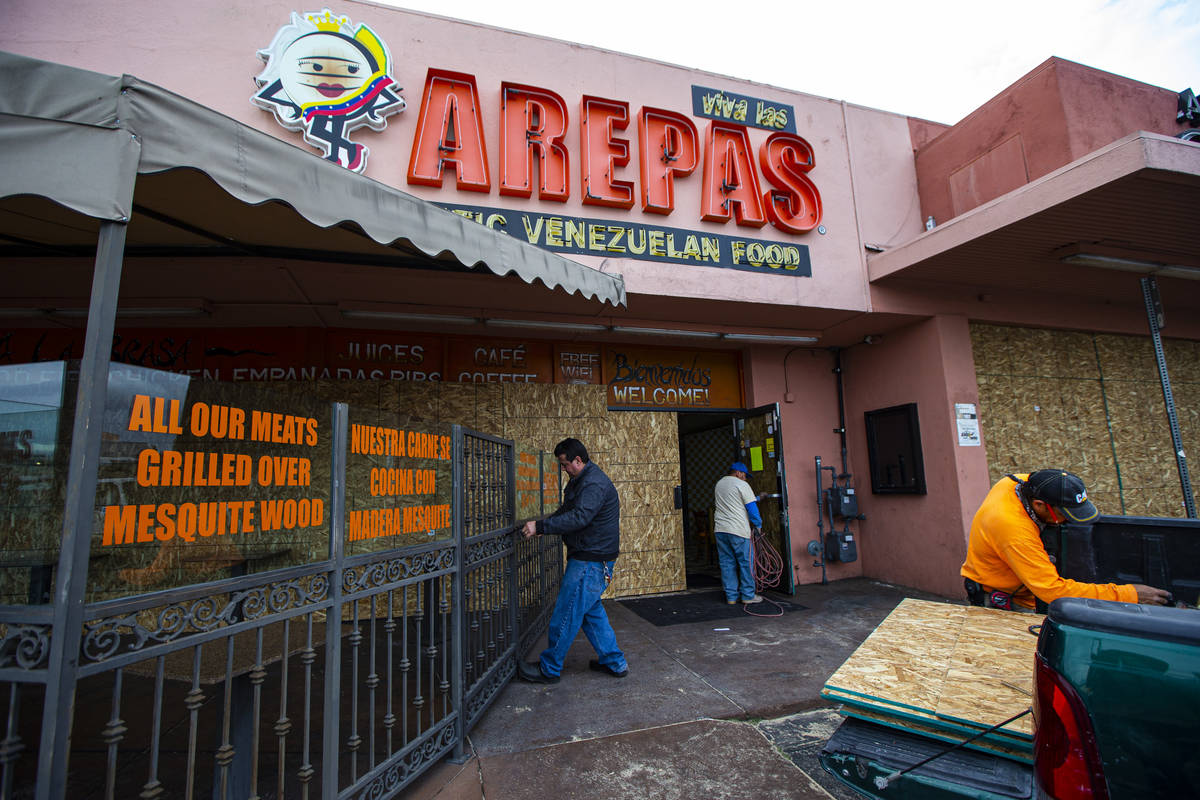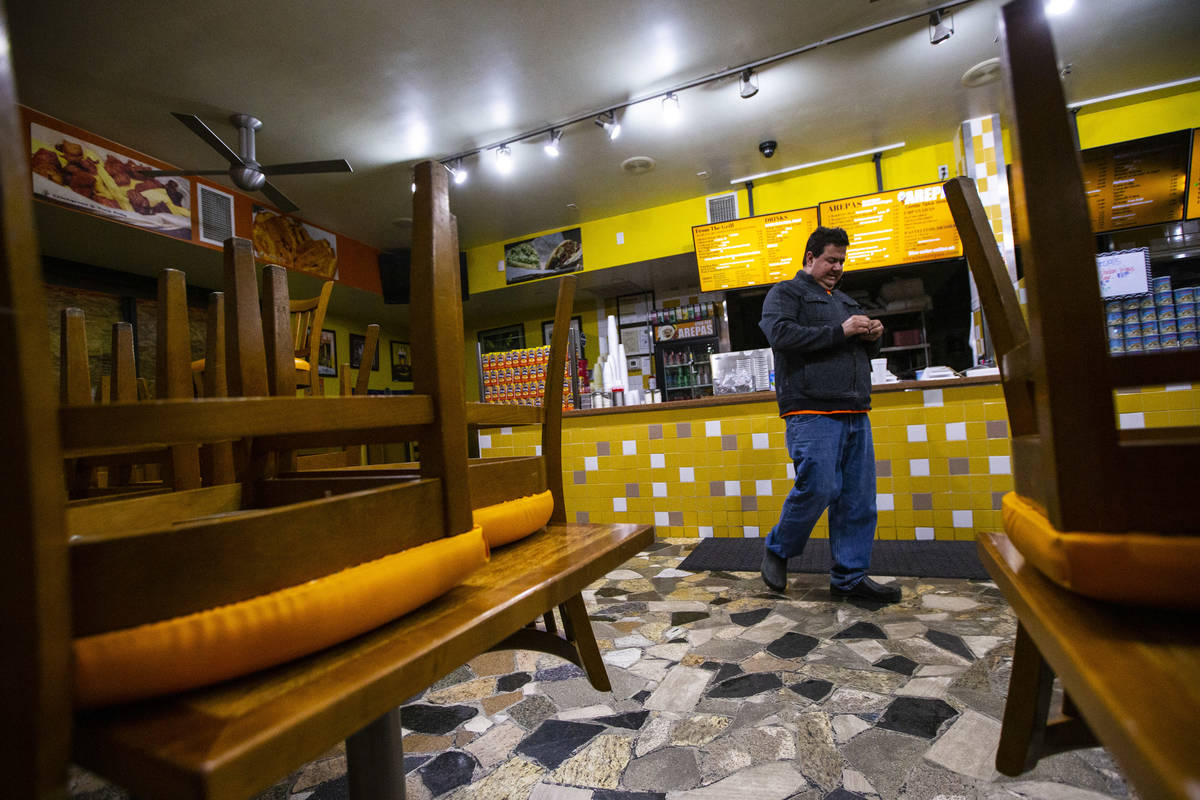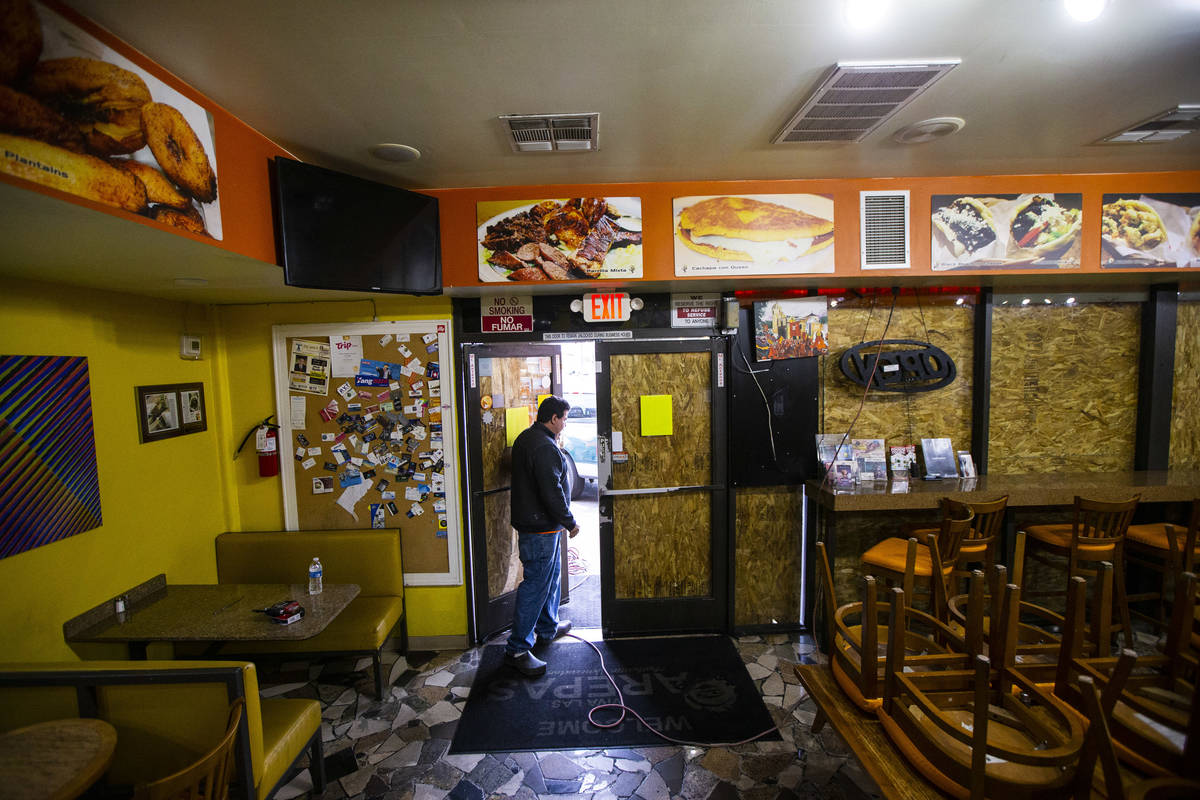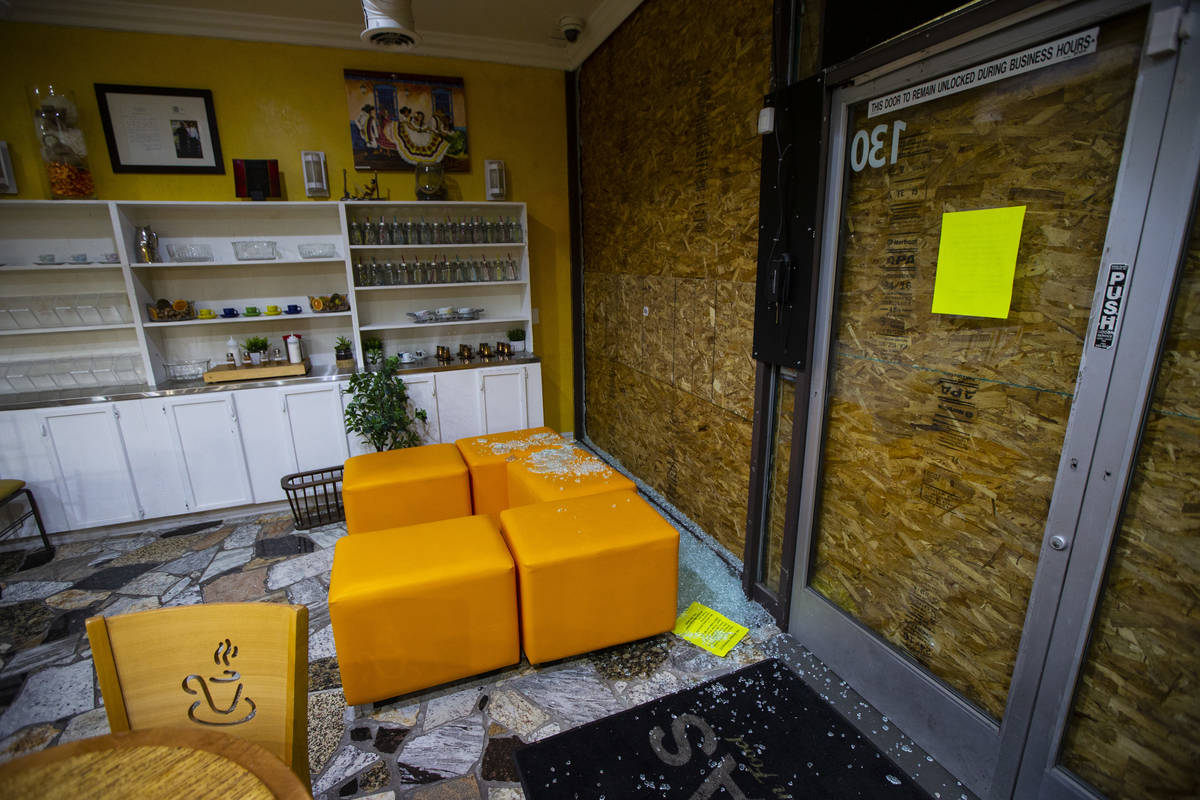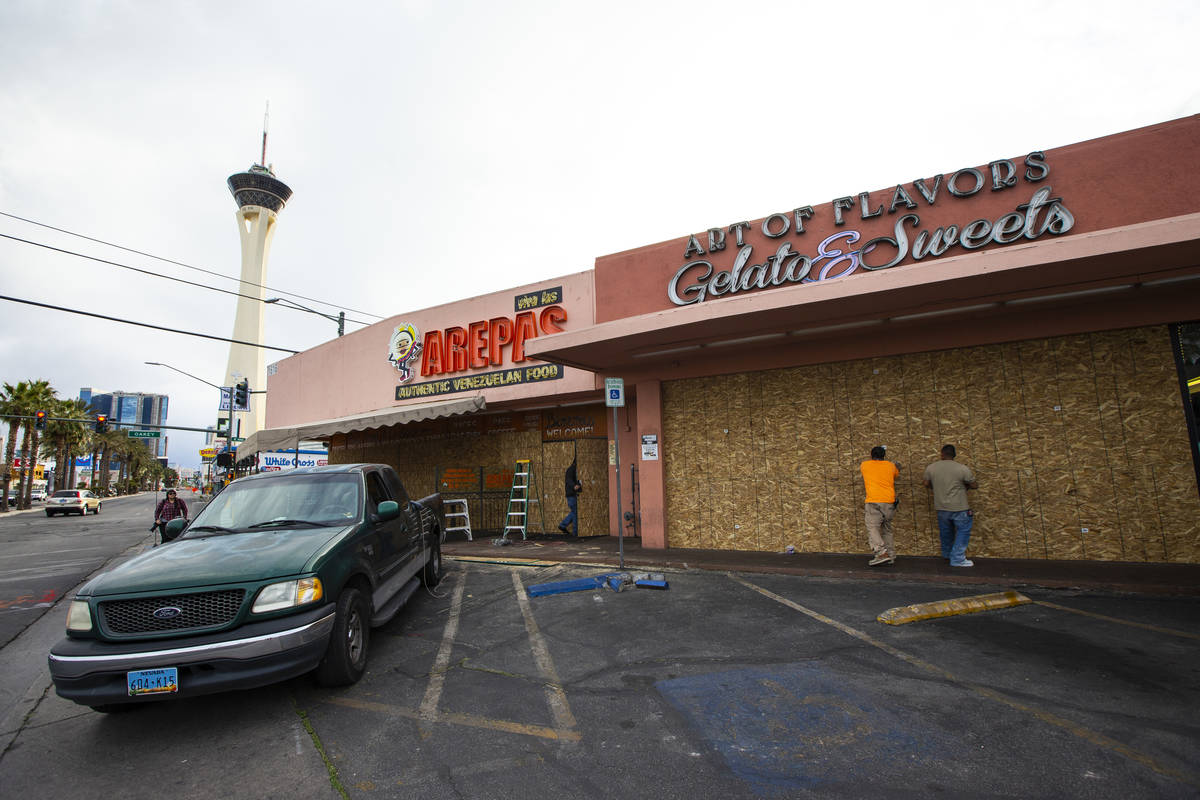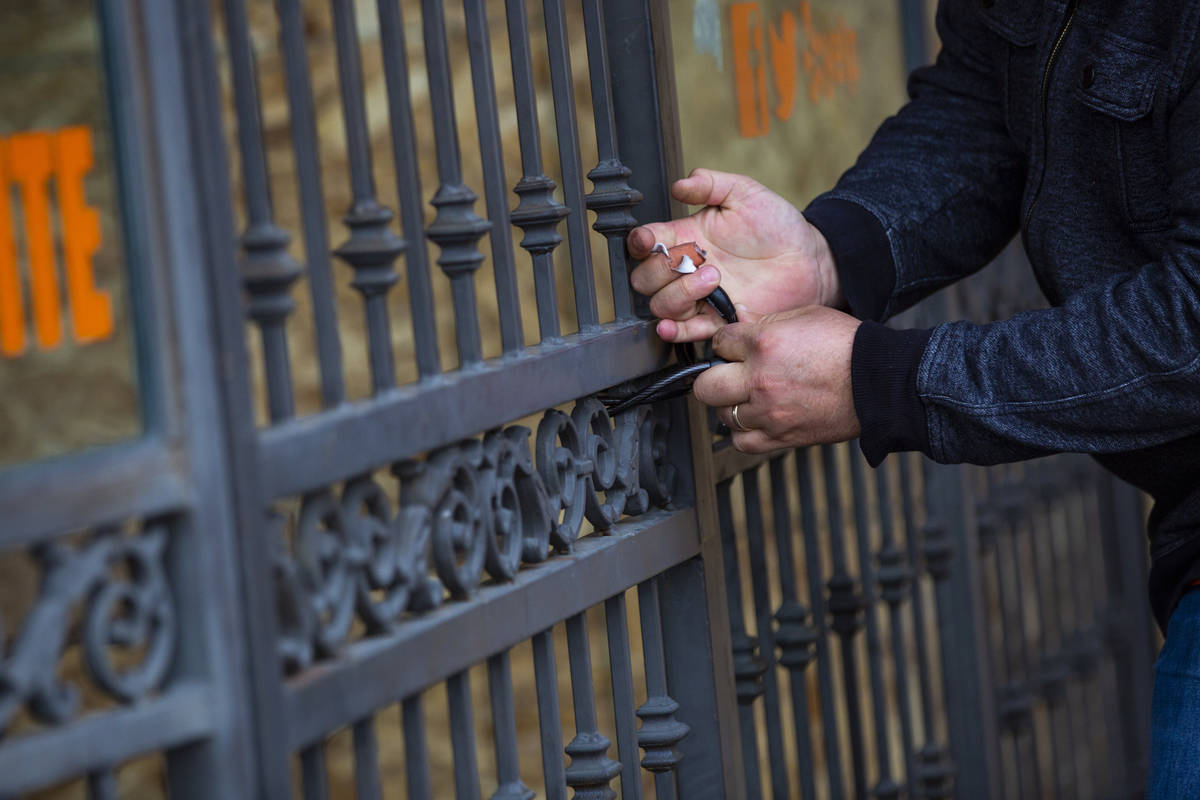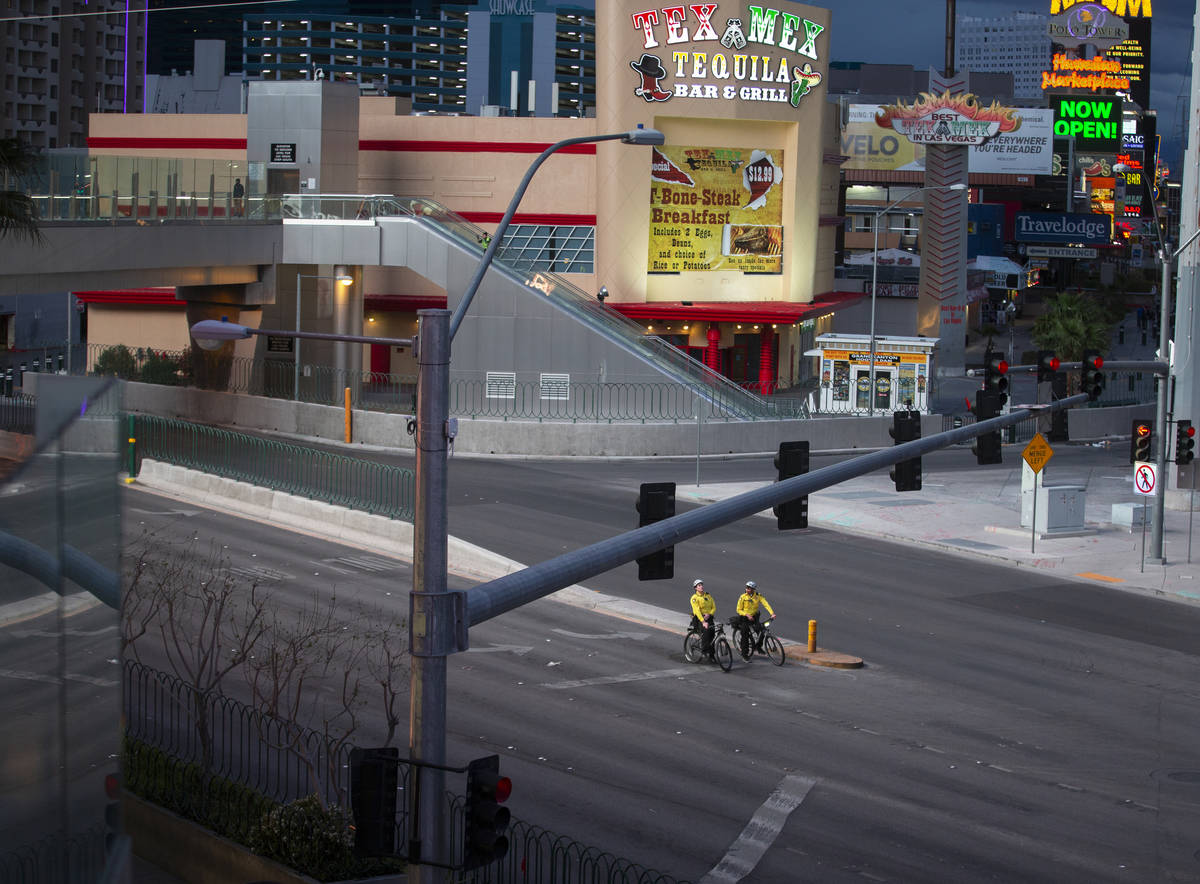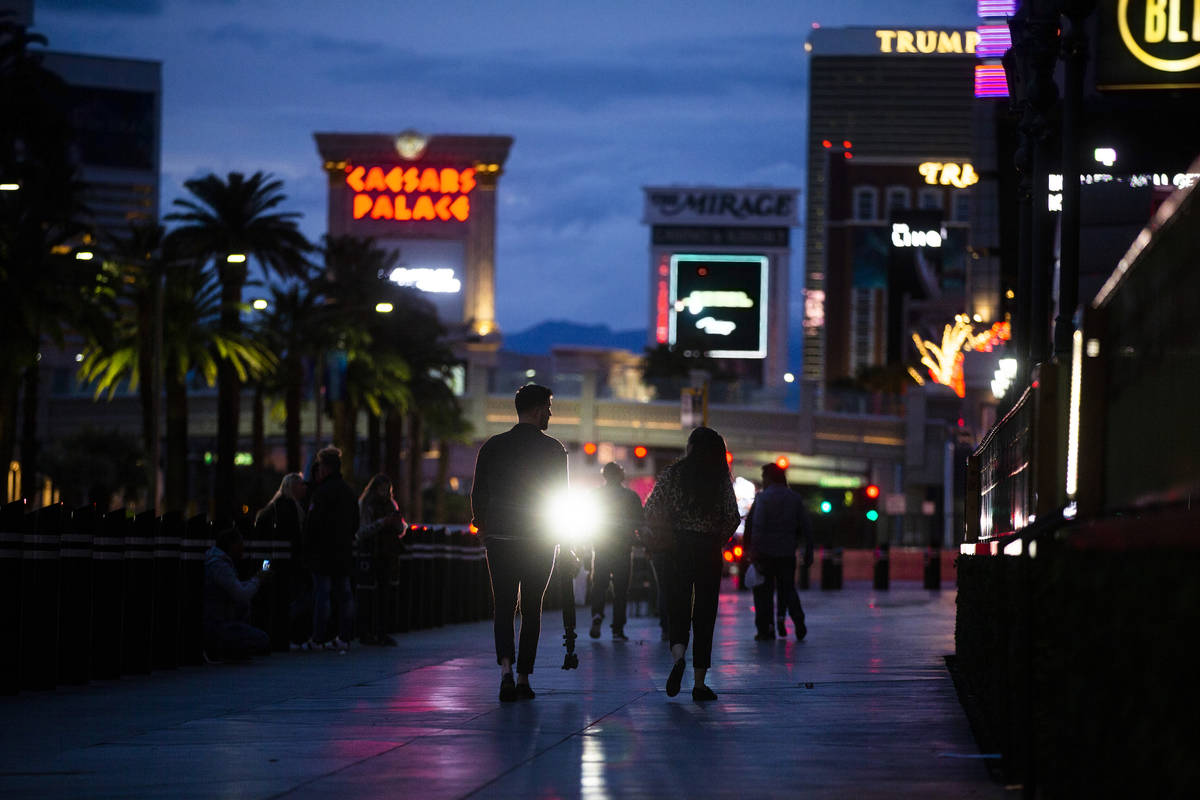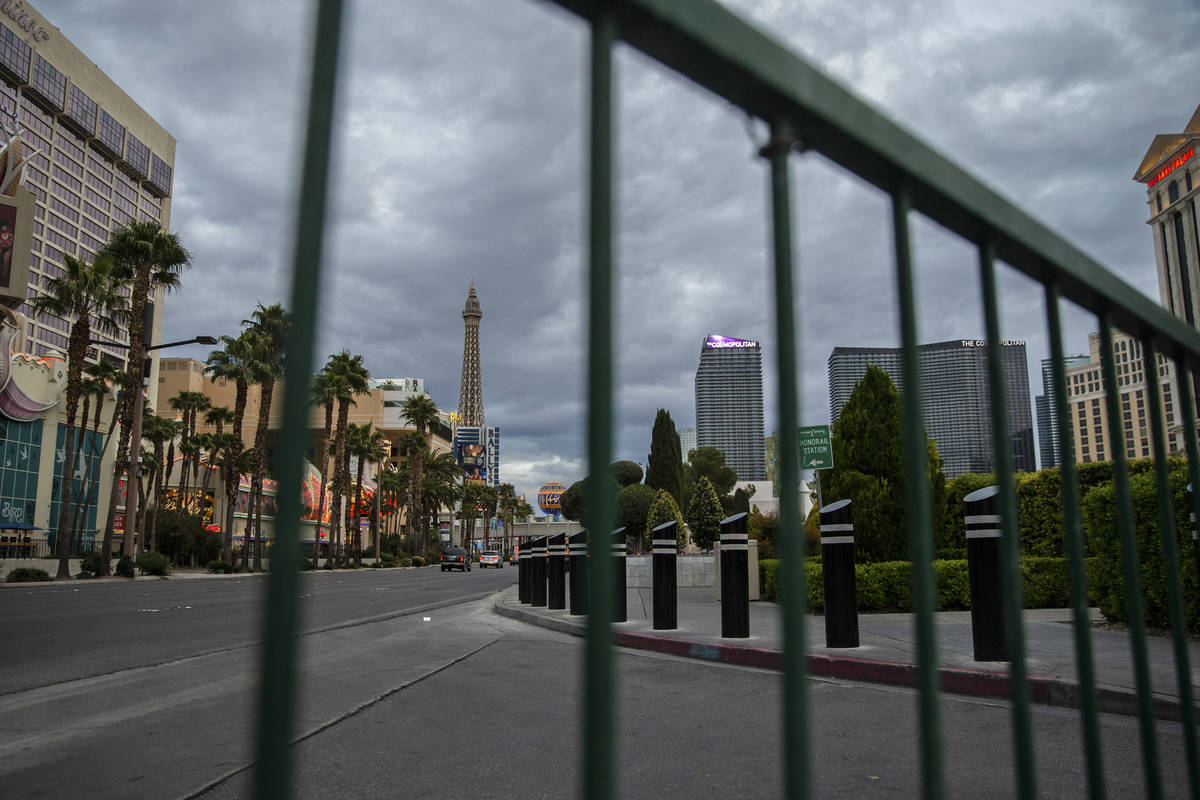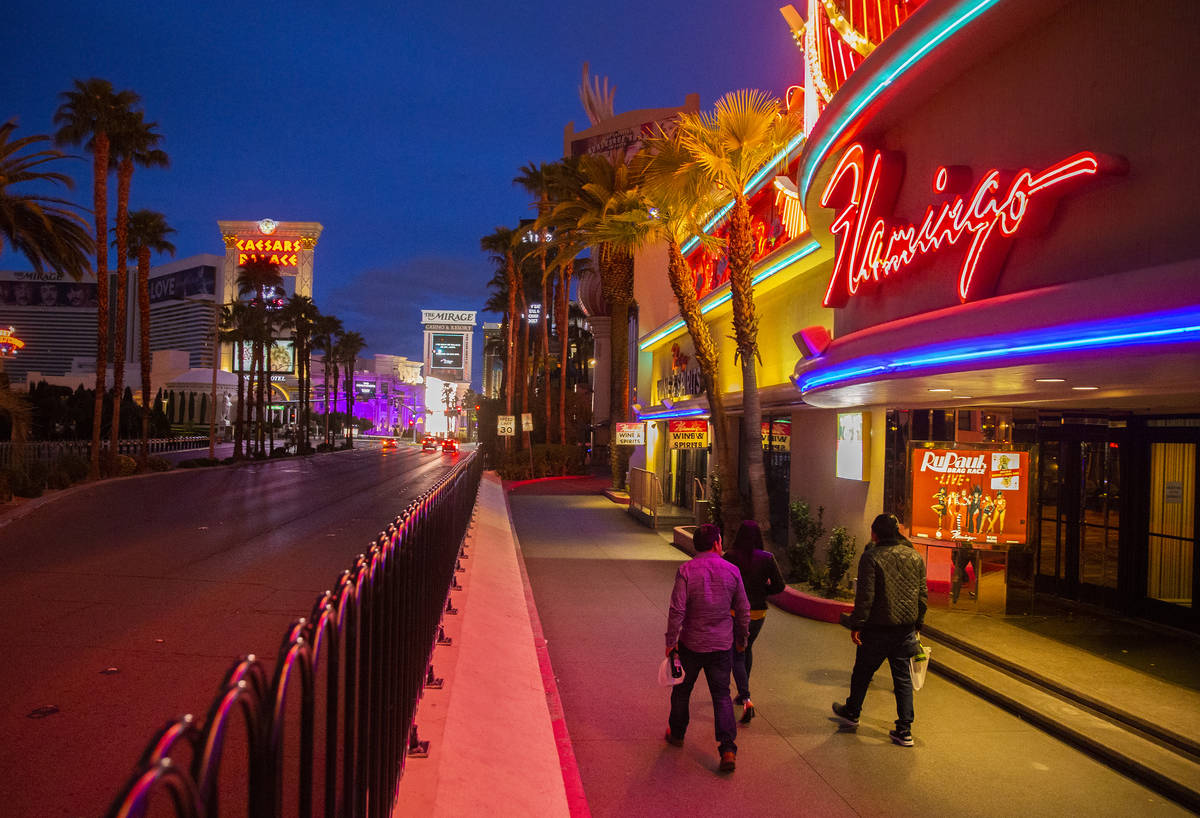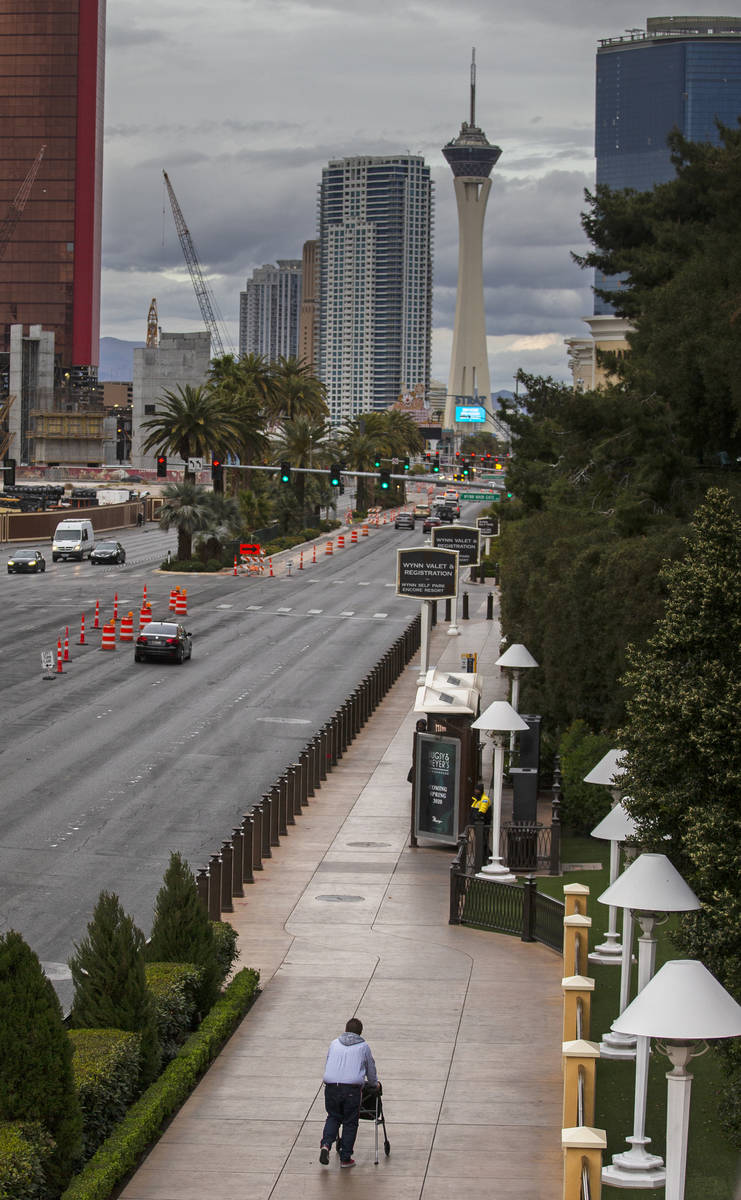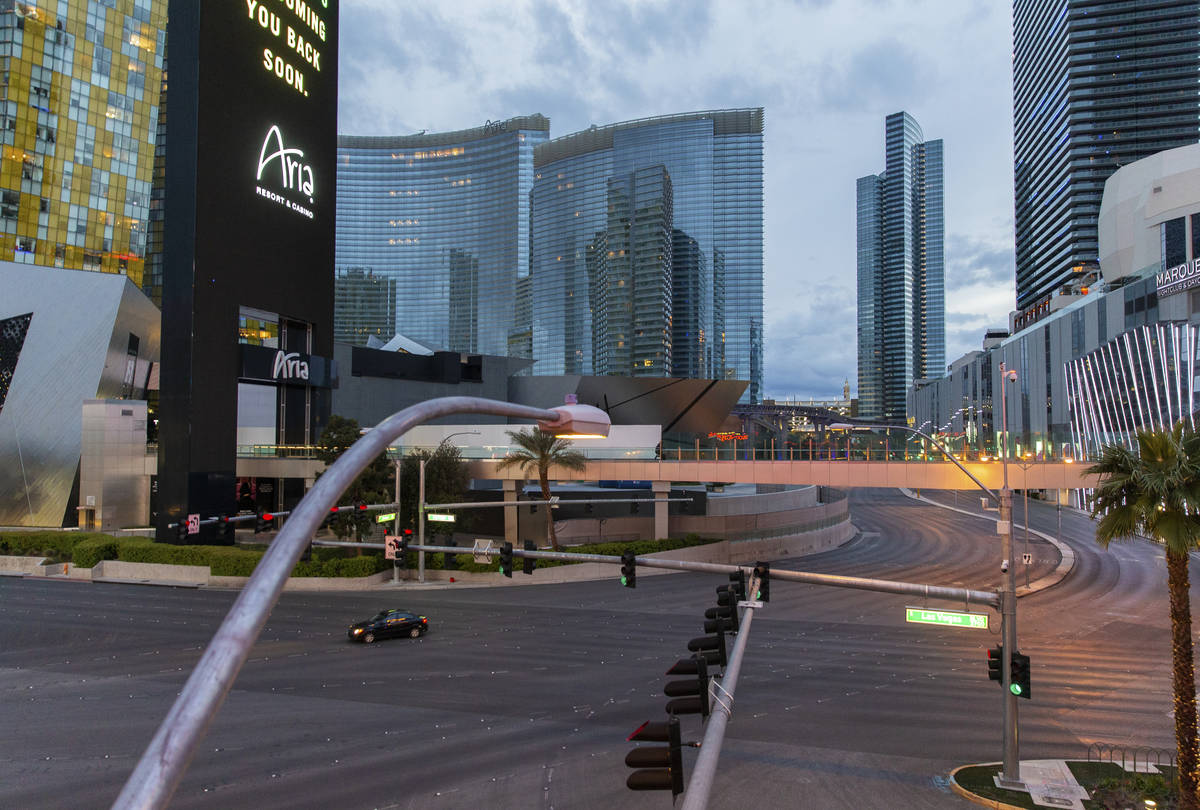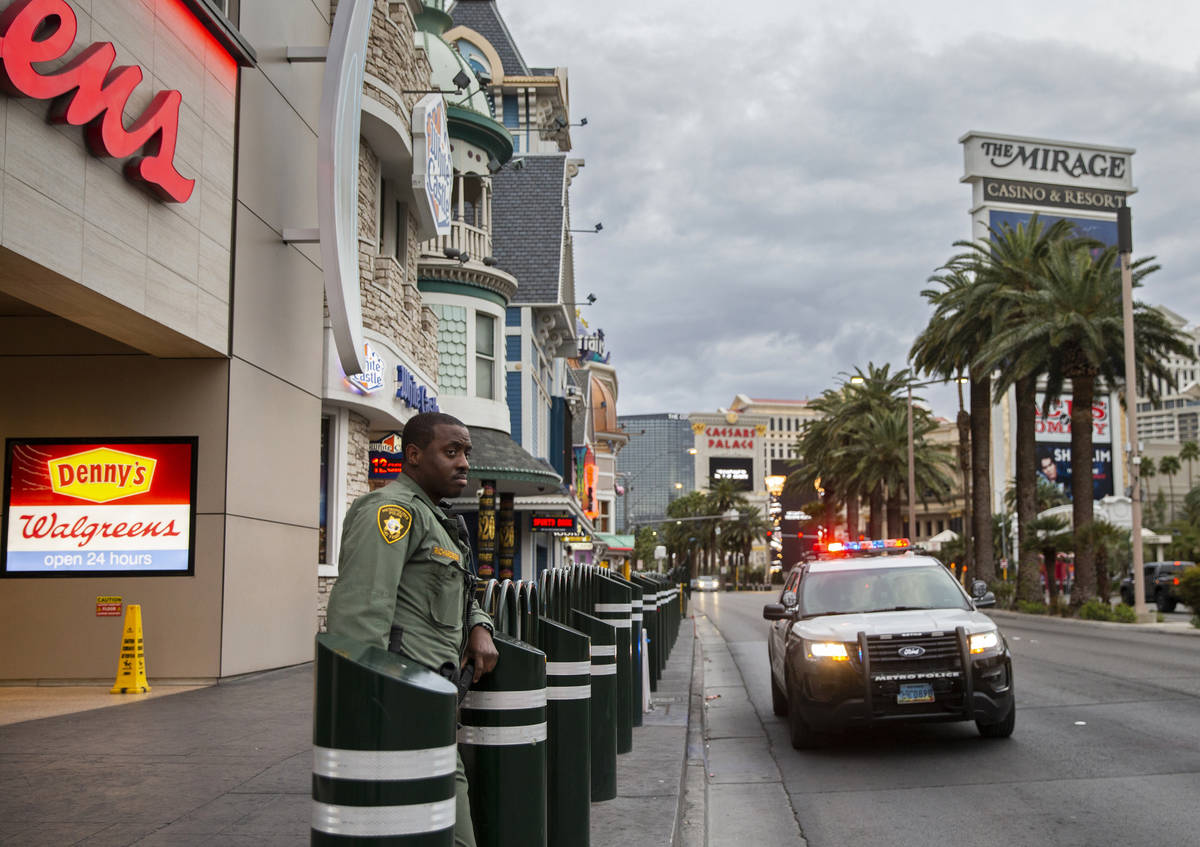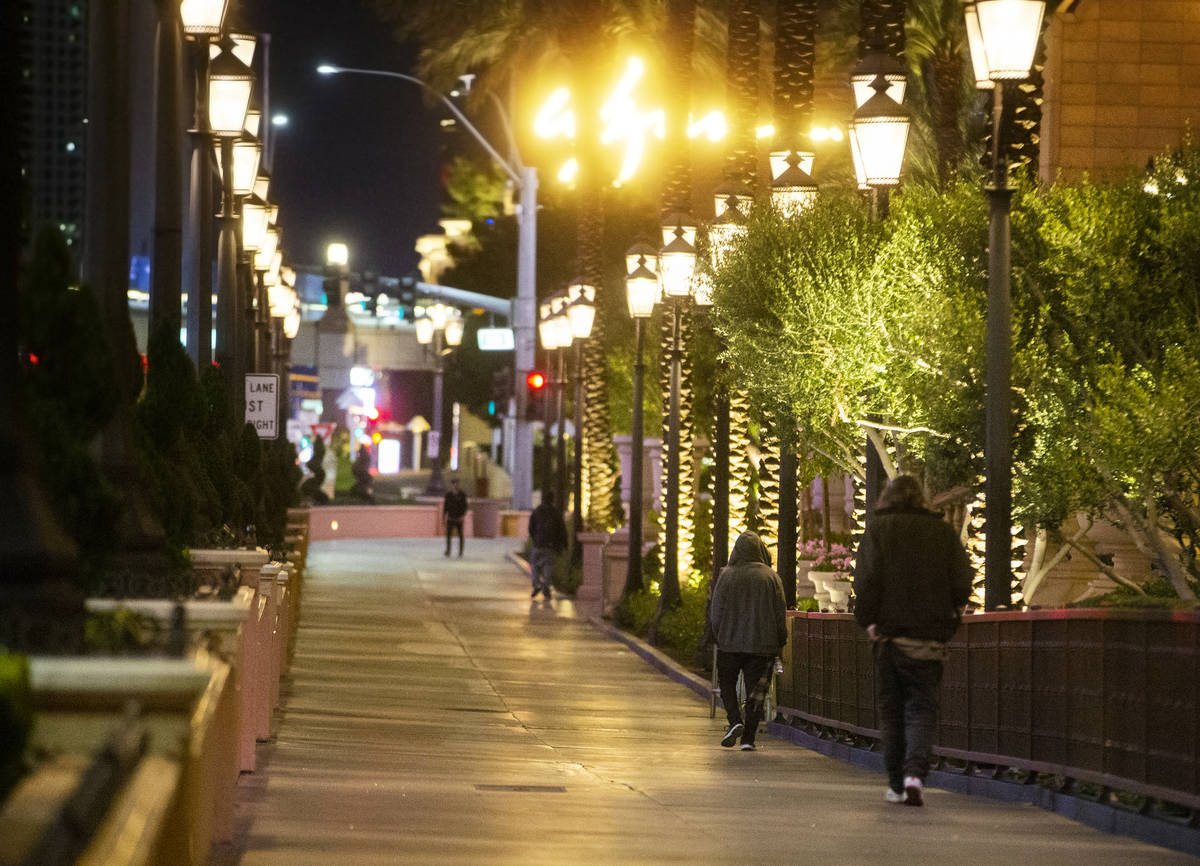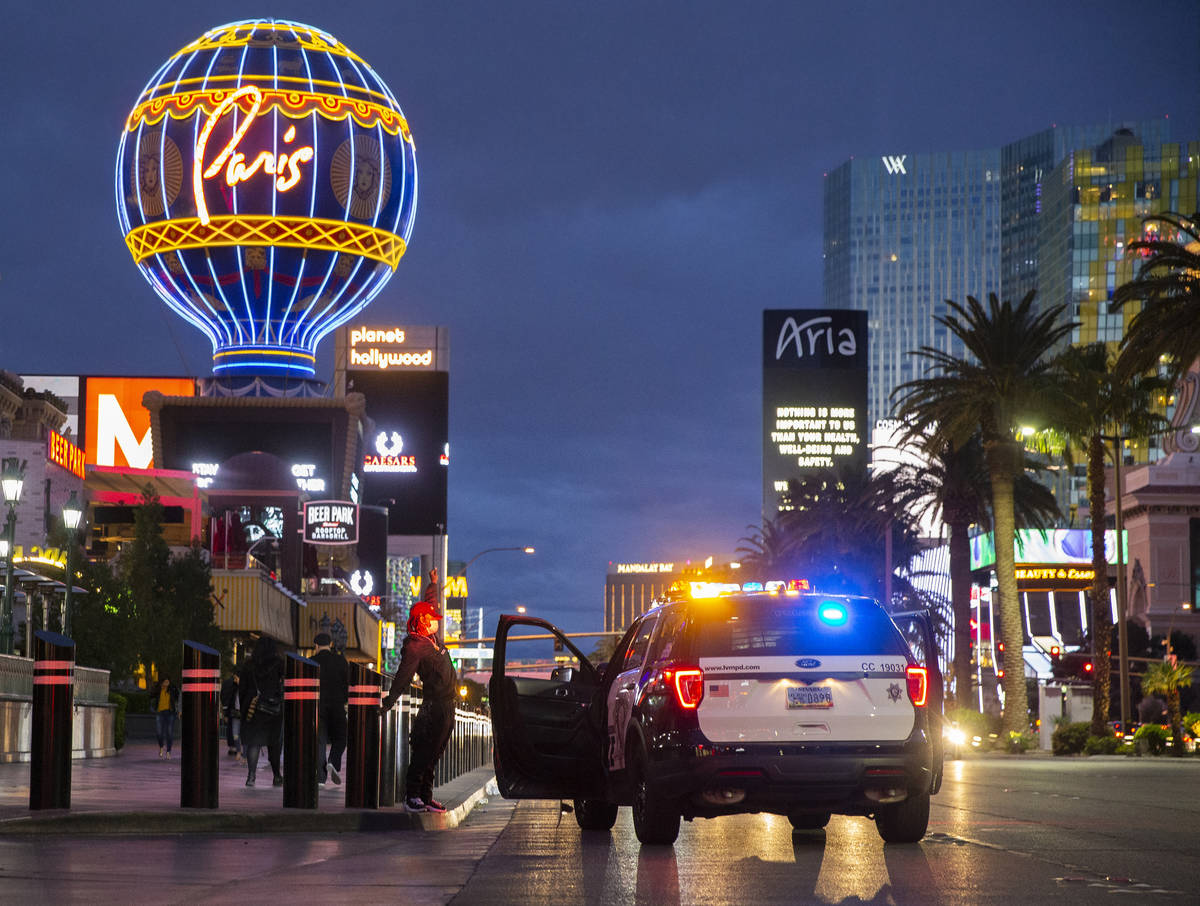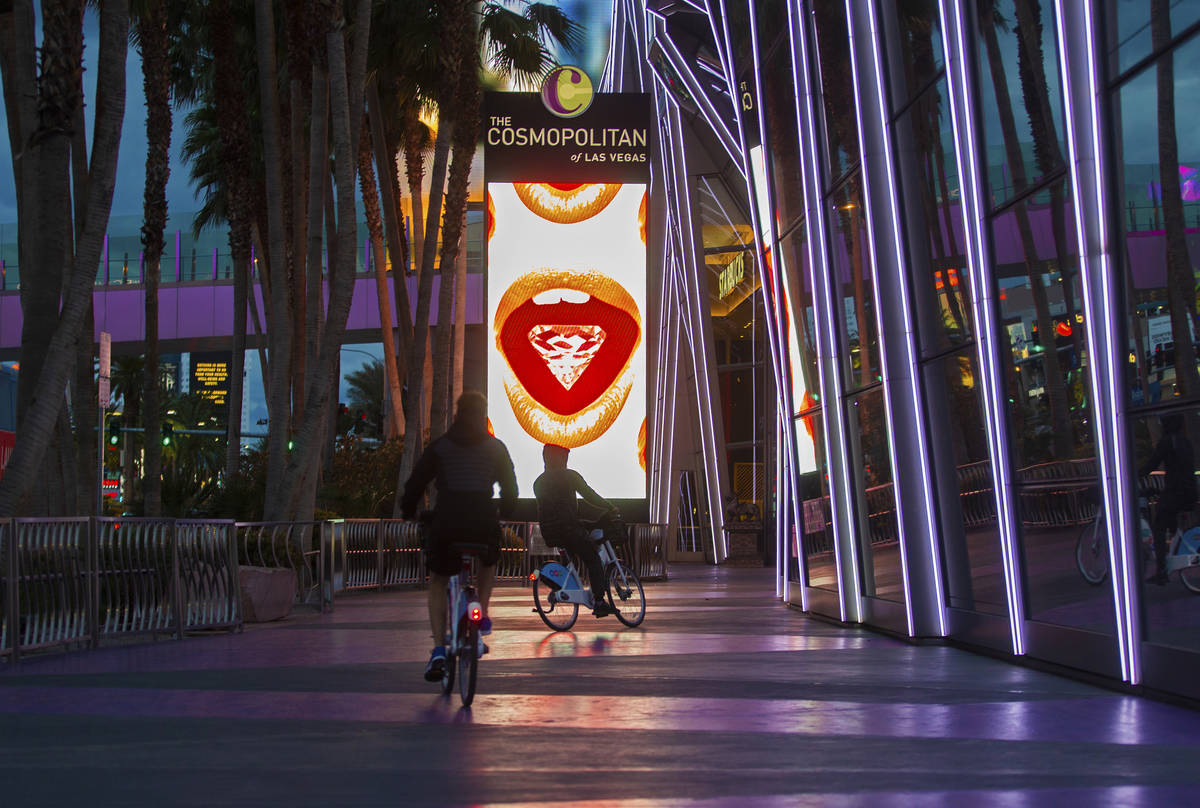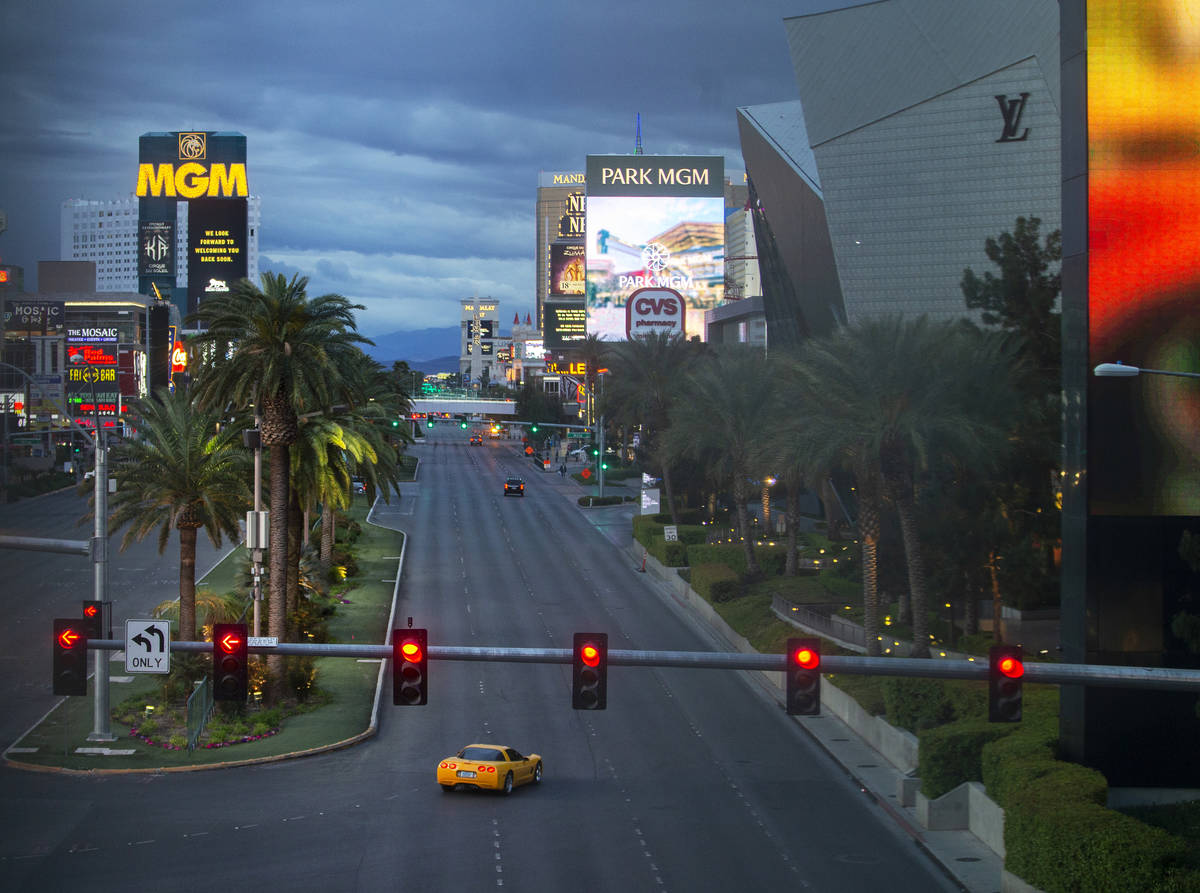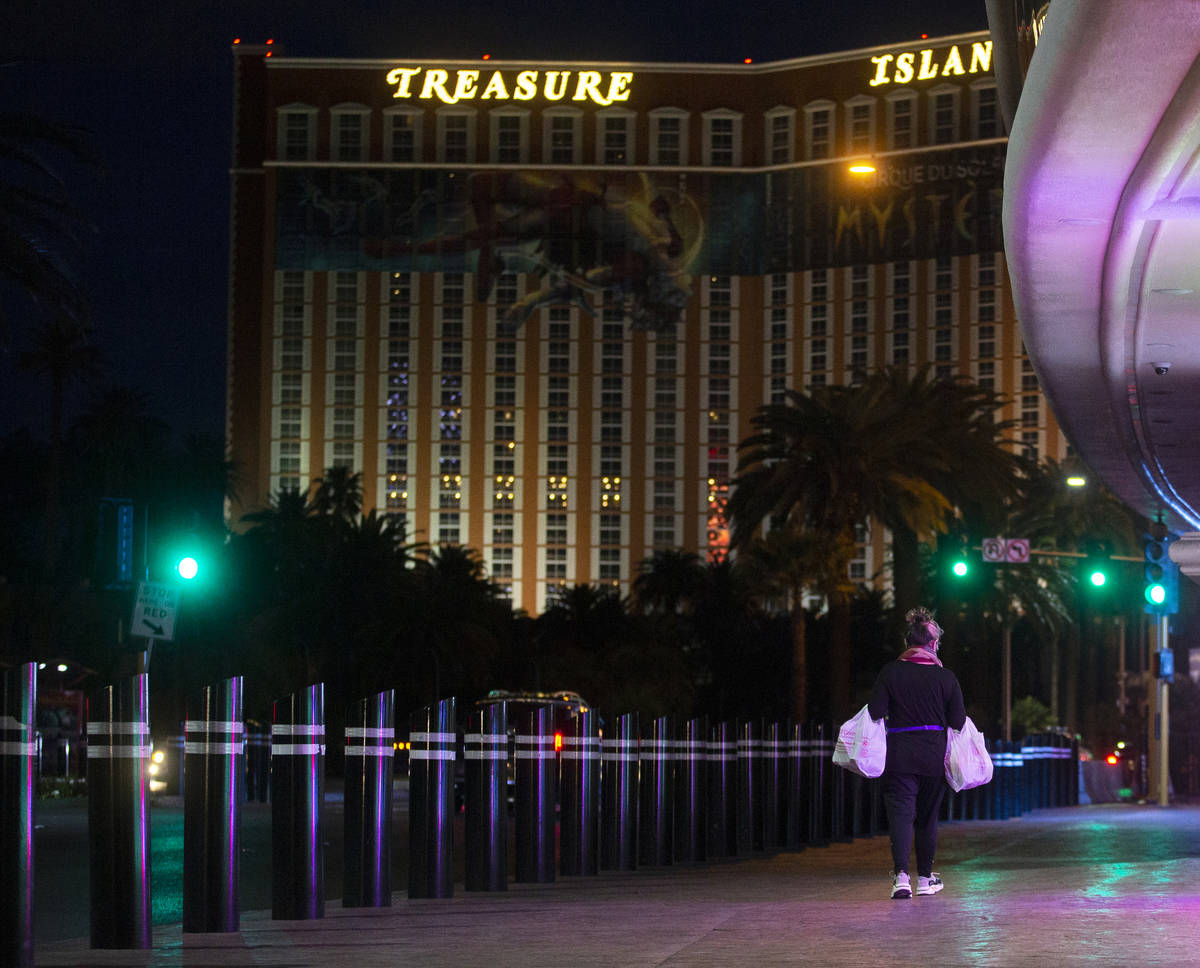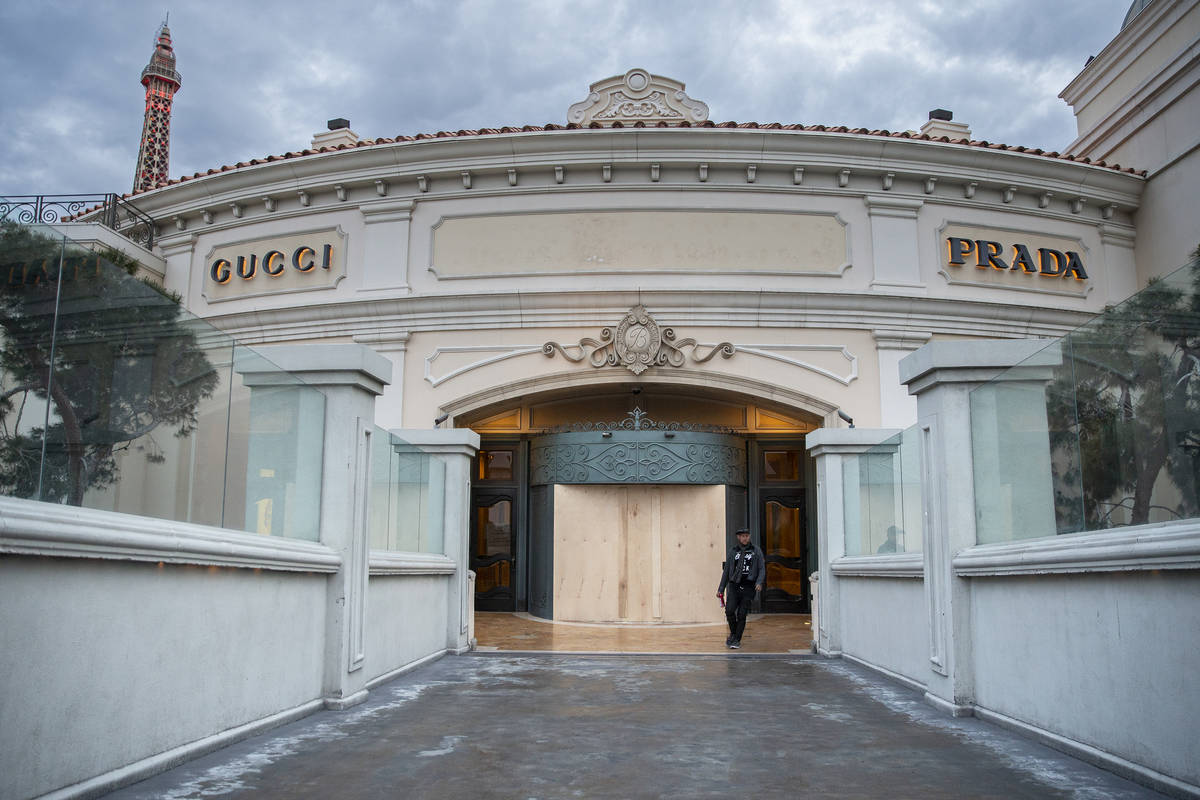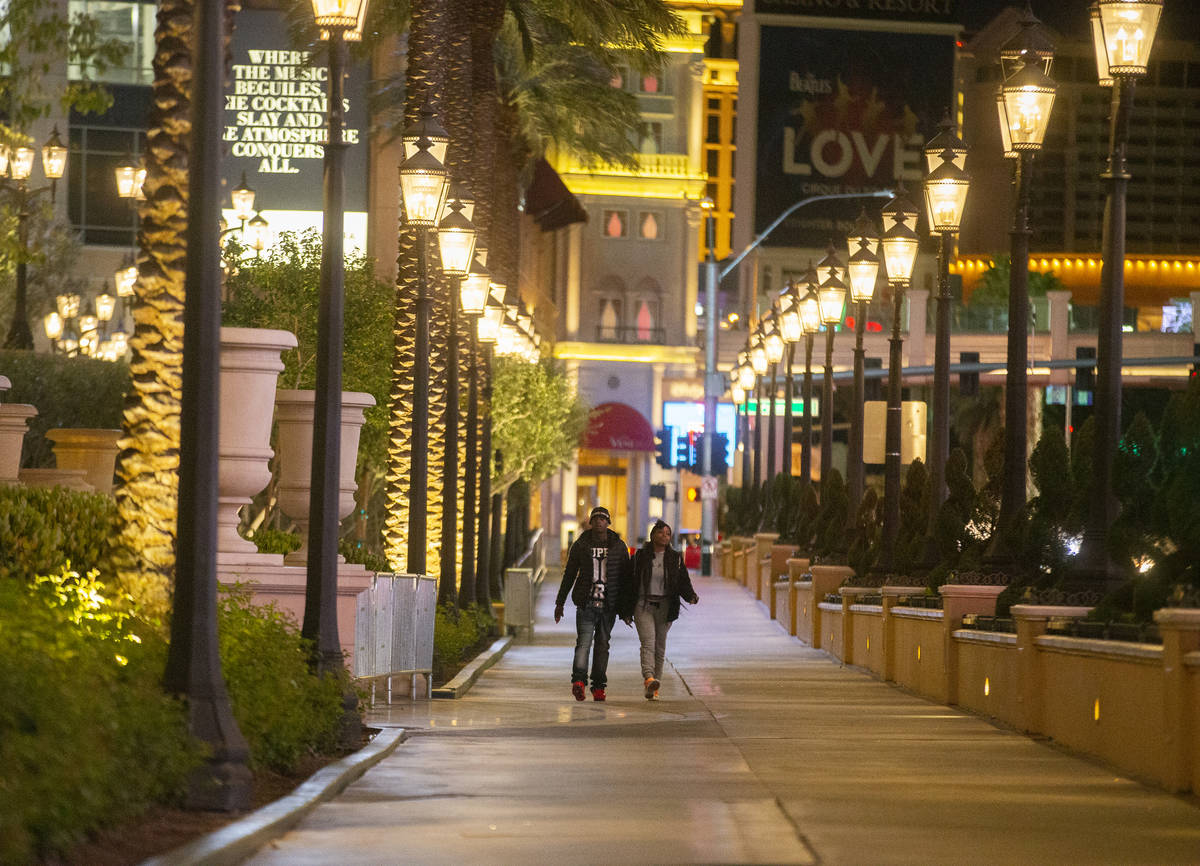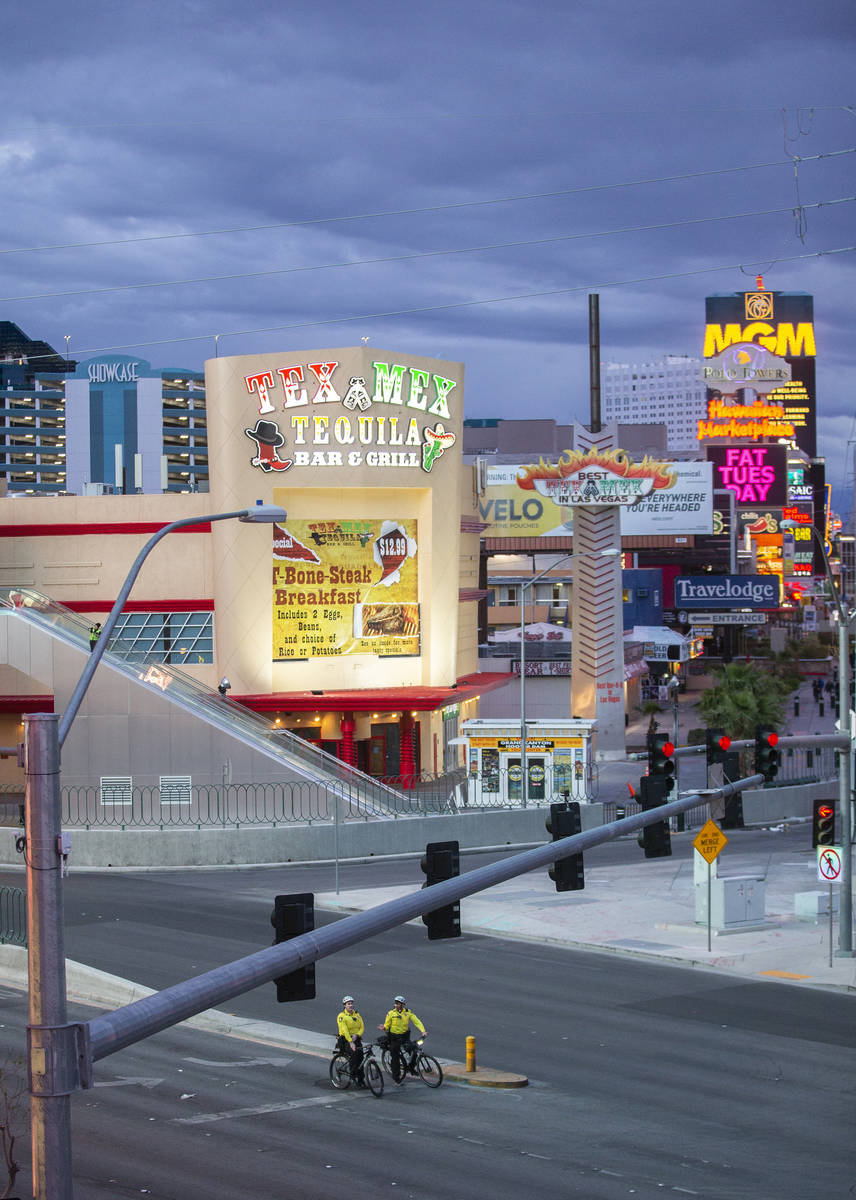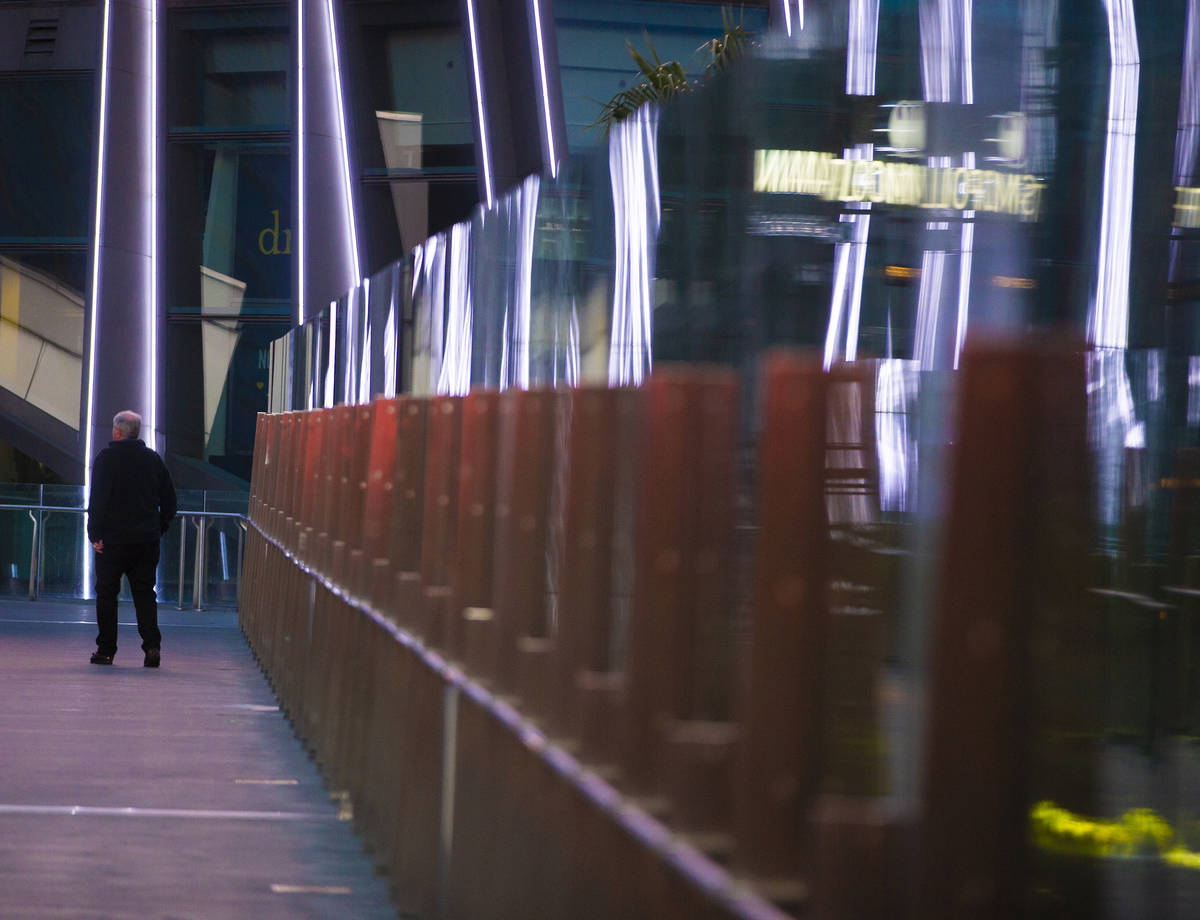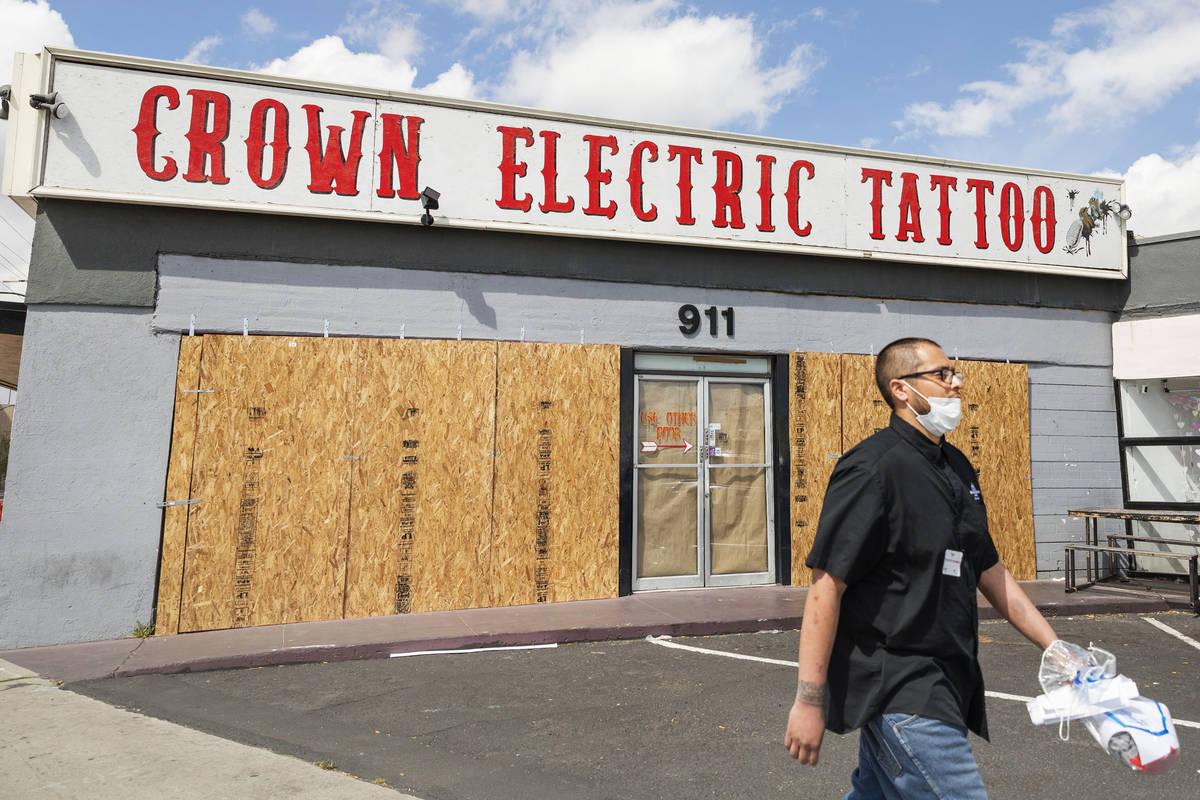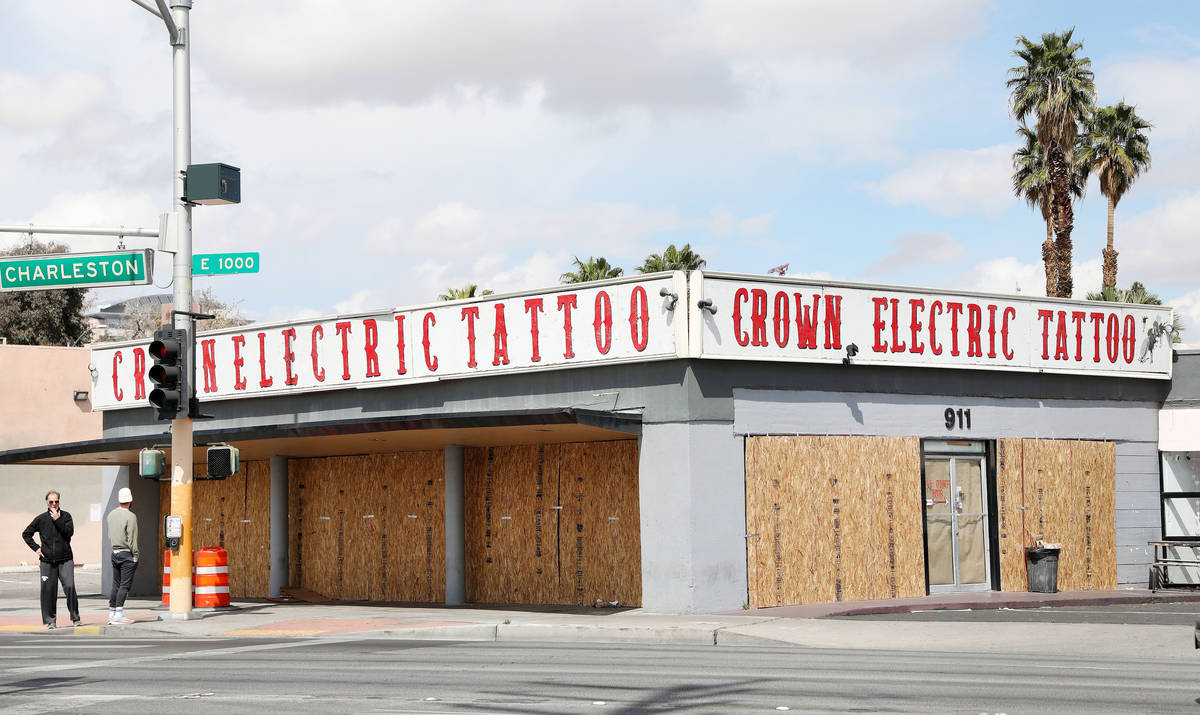Sisolak orders mandatory shutdown of nonessential businesses
CARSON CITY — Gov. Steve Sisolak on Friday ordered a mandatory shutdown of most nonessential businesses in the state, his broadest action to date in response to the spread of COVID-19 illness.
“I hope and I pray that our businesses and our business leaders understand the magnitude of this situation,” Sisolak said during a Friday news conference, conducted via Facebook. “First I asked. That didn’t work. Then I ordered. If this doesn’t work, they will face appropriate civil and criminal penalties as a result of their inaction.”
“This is a pandemic of devastating proportions. And we need to respond with the appropriate decisive measures,” Sisolak added.
The governor’s order comes three days after he strongly urged nonessential businesses in the state to shut their doors to blunt the growing coronavirus pandemic. But some of those businesses, and even some prominent local officials, pushed back.
The new order continues to exempt businesses such as grocery stores and pharmacies, gas stations and banks, hardware and convenience stores, and essential lodging, including homeless encampments.
The mandated closures go into effect at midnight and will apply to entertainment and hospitality businesses, recreation and athletic facilities, beauty and personal care services, and shopping malls. Businesses such as gyms, yoga studios, barber shops, nail and tanning salons, concert venues, even strip clubs and brothels will have to cease operations.
The businesses must stay closed until April 16.
Restaurants will still be able to offer delivery, curbside pickup and drive-thru, but sit-down dining will not be allowed.
The governor late Friday also issued an update to his earlier directive on closing all schools in the state, extending it to April 16 to match the business closures.
Penalties for not closing
He said the order gave local governments “the authority that they do not currently have to impose civil penalties,” including fines and license revocation. “If businesses defy this directive and stay open, state and local law enforcement will have the ability to treat this as a criminal act, after all other options have been exhausted,” Sisolak said.
“There should be no confusion, and there’s none in my mind. This is not the time to try to find loopholes,” Sisolak said. “If your business is not essential to providing sustenance, and for the everyday safety, health and well being of Nevadans, you must shut down so that we can give health care workers and our fellow citizens, the best chance at fighting this virus that we can.”
Rise in cases
The governor’s order comes as the number of reported COVID-19 infections has climbed to 154 statewide as of Friday, with two deaths. Cases have been reported in six of Nevada’s 17 counties, including Clark, Washoe, Nye, Douglas, Carson City and Elko.
California Gov. Gavin Newsom on Thursday night ordered the state’s nearly 40 million residents to stay at home unless to get essentials, such as groceries, medical supplies or gas. New York Gov. Andrew Cuomo issued a similar order for his state’s nearly 20 million residents early Friday morning as the number of confirmed cases in New York surpassed 7,000.
Sisolak noted Nevada saw its first case on March 5, and by Tuesday, when he urged businesses to close, the number stood at 64.
“Our positives have gone up 70 percent in three days,” Sisolak said early Friday afternoon. “We didn’t have to guess at what comes next. The rapid increase in positive cases will continue. The numbers aren’t slowing down. We have not yet reached our apex.”
Sisolak noted shortages of test kits that prevent a full accounting of infection in the state. The state is trying to source supplies on the open market, he said. Additionally, Nevada has fewer than 5,000 acute care beds, only 700 of which are intensive care unit beds. Right now, 80 percent of those beds are in use.
“We have similar limits when it comes to ventilators,” he said. “If we do not do everything we can to slow this virus, hospital beds will soon be completely filled with COVID-19 patients.”
Some ignore suggestion
The new order comes three days after the governor closed casinos but otherwise directed nonessential businesses to consider closing. Businesses across the state followed suit and shut their doors in recent days.
But some chose to stay open. GameStop, for example, kept all of its stores in Las Vegas open as the company considers itself “essential.”
There also seemed to be confusion among local governments about the governor’s words Tuesday, and whether the closures were mandatory or simply suggested.
The city of Reno said it would enforce the closures with monetary penalties and possible revocation of business licenses for those that didn’t comply.
Multiple attempts to reach Metropolitan Police Department officials about enforcement plans were unsuccessful Friday night.
Goodman defiant
Las Vegas Mayor Carolyn Goodman made no secret of the fact that she disagreed with Sisolak’s approach. Not only did the city of Las Vegas hold its regular council meeting on Wednesday — all other local governments canceled meetings — but she used a public comment period to ask him to shorten the time he’d asked businesses to close.
“Please, governor, we need to be able to live our lives, support our families and, yes, keep Nevada strong, but together,” she said. “But we can’t do that if we are continuously housebound, unable to work for such a lengthy time period.”
On Friday, Sisolak made clear he wasn’t changing his mind because he considered the crisis a matter of life and death.
“Your life and the life of your neighbors and family members will always be more valuable to me than the perceived economic gain we have by cutting this isolation period short or by waiting one more day to get serious,” he said. “Waiting one more day to begin taking serious actions to mitigate this virus is one more day of Nevadans getting sick and dying. And if someone is telling you otherwise, they are either mistaken, or recklessly incorrect.”
The governor briefly took questions from reporters via conference call. Asked about his frustration toward businesses and local officials that did not heed his previous request, he said “people that have acted inappropriately or misguided in the businesses that have done likewise know who they are.
“I am not asking them anymore,” Sisolak said. “I am telling them that they must close their doors, or they will face the consequences. As for elected officials. I encourage them to understand the severity of the situation we’re facing and become part of the solution.”
The Retail Association of Nevada issued a statement urging people to stay home to let the coronavirus threat pass but urged residents to support local businesses as best they can when the crisis abates.
“All we can say is ‘thank you’ to the nonessential Nevada businesses that are closing their doors tonight,” said Bryan Wachter, the association’s senior vice president. “When COVID-19 has slowed and the recovery begins, we will owe them a debt of gratitude to help them stand back up on the other side.”
Open for business
According to Gov. Steve Sisolak’s office, the following businesses are considered essential, and may remain open.
— Emergency services (fire, police medical)
— Social services organizations that serve disadvantaged populations with food, shelter, or critical needs
— Utilities and trash collection
— Air transportation
— Construction, mining, manufacturing, infrastructure businesses, so long as social distancing followed
— Home maintenance/repair services and auto repair services
— Trucking service centers
— Grocery stores, supermarkets, hardware stores, convenience and discount stores
— Pharmacies, health care operations and biomedical facilities
— Post offices and shipping outlets
— Gas stations and truck stops
— Banks and financial institutions
— Veterinary services and pet stores
— Laundromats and dry cleaners
— Food processing facilities
— Agriculture, livestock and feed mills
— Logistics and supply chain operations, including warehouses, storage and distribution facilities
— Public transportation
— Essential stays in hotels, commercial lodging, dormitories, shelters, and homeless encampments
— Child care centers and daycares operating in accordance with requirements set forth by their licensing authorities and COVID-19 guidance.
Closed for business
Meanwhile, these businesses are considered nonessential and must close:
— Entertainment and hospitality, including strip clubs and brothels, casinos, concert venues, arenas, auditoriums, stadiums, large conference rooms, meeting halls, and cafeterias.
— Recreation and athletic facilities including community and recreation centers, gyms, health clubs, fitness centers, yoga, barre and spin facilities.
— Beauty and personal care services and facilities, including barber shops, beauty, tanning, waxing hair salons, and nail salons and spas.
— Retail facilities including shopping malls except for pharmacy or other health care facilities within retail operations. Retailers are encouraged to continue online operations with pickup and delivery.
Contact Colton Lochhead at clochhead@reviewjournal.com. Follow @ColtonLochhead on Twitter. Contact Bill Dentzer at bdentzer@reviewjournal.com. Follow @DentzerNews on Twitter.



